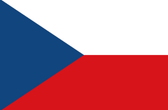
Call 0330 880 3600 Calls may be monitored or recorded. Opening Times.
- TRAVEL INSURANCE
- COVID-19 COVER
- More Options
- Help & Advice
- Existing Customers

Call 0330 880 3600 Calls may be monitored or recorded. Opening Times.

Need help?
UK Customer Services0330 880 3600*
Open Monday to Friday 9:00am to 6pm, Saturday 8:30am to 4pm and closed Sundays.
*Calls are recorded for training and quality purposes.

Official name: Czech Republic (commonly known as Czechia)
Capital city: Prague
Official language: Czech, English, German
Population: Around 10.7 million
Currency: Czech koruna (CZK)
Time zone: GMT+1
Driving side: Right
Climate: Temperate continental climate with warm summers and cold, snowy winters; spring and autumn are mild but can be changeable
Czechia, also known as the Czech Republic, is a landlocked country in Central Europe known for its medieval towns, Gothic architecture, and world-famous beer culture. Prague, its capital, is one of Europe’s most visited cities, celebrated for landmarks such as Charles Bridge, Prague Castle, and its atmospheric Old Town Square. Beyond Prague, travellers can explore spa towns like Karlovy Vary, castles in South Bohemia, and the natural beauty of the Krkonoše and Šumava mountains.
Bordered by Germany, Austria, Slovakia, and Poland, Czechia sits at the crossroads of Central Europe. Its landscape features rolling hills, river valleys, and forested highlands, with the Elbe and Vltava rivers flowing through the country. The climate is distinctly continental, with cold winters and warm summers, and snow common in mountainous areas.
Czechia is well connected, with Václav Havel Airport Prague serving as the main international hub. The country has an extensive and reliable train and bus network, making travel between cities easy and affordable. Within Prague, the metro, trams, and buses are efficient and inexpensive. Driving is straightforward, though parking in city centres can be challenging. Czechia is part of the Schengen Area, allowing for easy onward travel to neighbouring countries.
As a member of the EU and Schengen Area, Czechia allows UK citizens and many other nationals visa-free entry for short stays of up to 90 days within a 180-day period. Longer stays or work permits require appropriate visas or residency permits. The British Embassy is located in Prague, and most countries maintain diplomatic representation in the capital.
The Czech koruna (CZK) remains the national currency, despite EU membership. Credit and debit cards are widely accepted, though smaller shops, cafés, and rural establishments may prefer cash. ATMs are plentiful. Currency exchange offices are common in tourist areas but may charge high commissions—using ATMs or reputable banks is recommended. The cost of living is generally lower than in Western Europe, with good value available on food, drink, and accommodation.
Healthcare in Czechia is of a good standard, with modern hospitals and clinics in larger towns and cities. EU residents can use a European Health Insurance Card (EHIC/GHIC) for state-provided care, but comprehensive travel insurance is strongly advised, especially for private treatment or repatriation. Pharmacies are widely available and can offer basic advice and medicines. Tap water is safe to drink across the country.